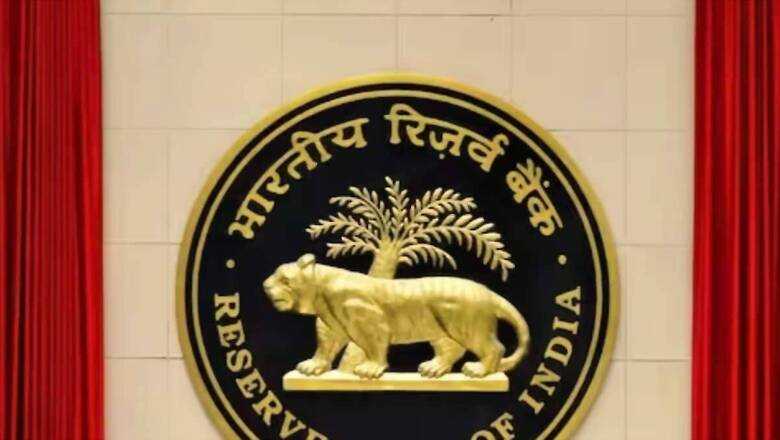
views
Concerned over the practice of banks and non-banking financial companies (NBFCs) using penal interest as a revenue enhancement tool, the Reserve Bank of India (RBI) on Friday came out with modified norms, under which lenders would be able to levy only “reasonable” penal charges in case of default in repayment of loans. It said banks and other lending institutions will not be allowed to levy penal interest with effect from January 1, 2024.
In its notification on ‘Fair Lending Practice-Penal Charges in Loan Accounts’, the RBI said, “The intent of levying penal interest/charges is essentially to inculcate a sense of credit discipline and such charges are not meant to be used as a revenue enhancement tool over and above the contracted rate of interest. However, supervisory reviews have indicated divergent practices among the REs (regulated entities) with regard to levy of penal interest/charges leading to customer grievances and disputes.”
It added that penalty, if charged, for non-compliance of material terms and conditions of loan contract by the borrower “shall be treated as ‘penal charges’ and shall not be levied in the form of ‘penal interest’ that is added to the rate of interest charged on the advances”.
The RBI also said the quantum of penal charges “shall be reasonable and commensurate with the noncompliance” of material terms and conditions of loan contract without being discriminatory within a particular loan/product category.
Also, there shall be no capitalisation of penal charges — no further interest computed on such charges. However, the instructions will not apply to credit cards, external commercial borrowings, trade credits and structured obligations which are covered under product-specific directions, the RBI said.
The RBI said that many entities regulated by it use penal rates of interest, over and above the applicable interest rates, in case of defaults/non-compliance by the borrower. “The intent of levying penal interest/charges is essentially to inculcate a sense of credit discipline and such charges are not meant to be used as a revenue enhancement tool over and above the contracted rate of interest,” the Central bank said.
However, supervisory reviews have indicated divergent practices amongst the entities regulated by entities with regard to levy of penal interest/charges leading to customer grievances and disputes, it said, while issuing the modified norms.
Jyoti Prakash Gadia, managing director of Resurgent India, said, “The new guidelines announced by RBI relating to the levying of penal charges by the banks is a significant development to ensure transparency and shall bring in an element of relief to borrowers, particularly individual retail borrowers.”
Gadia added that the penalty for noncompliance with important terms and conditions of Sanctioned loans, was so far by way of charging an additional rate of interest of 1 to 2 per cent over and above the normal rate with compounding effect. This entailed a heavy and unreasonable burden on the borrowers.
“The new guidelines are a welcome step as the proposed penal changes shall no longer be linked to the interest rate and shall be quantified in lump sum amounts payable as one-time charges for noncompliance without any compounding effect. The charges need to be reasonable and will reduce the net amount payable as a penalty. The uniformity in the application of charges, that too with prior clear notice, will bring the much-desired transparency to benefit the customer,” he said.
Currently, the banks generally treat the penal interest as a part of interest income which in turn boosts their net interest income (NIM) which is an important metric of the operational efficiency of a bank.
“The revised guidelines will affect the NIM of the banks and also likely to impact overall revenues since the charges will now have to be reasonable and not by way of usurious heavy penal interest levied on the entire amount of loan outstanding,” Gadia said.
Anil Pinapala, CEO & founder, FlexPay by Vivifi, said, “This marks yet another positive stride taken by the RBI to enhance transparency and uphold equity in lending, prioritizing the interests of borrowers. The modifications guarantee that all direct loan-related fees are fully unveiled within the comprehensive annual percentage rate (APR) outlined in the key facts statement (KFS). This ensures that such charges are transparently presented, eliminating any potential concealment within penal charge wordings.”



















Comments
0 comment